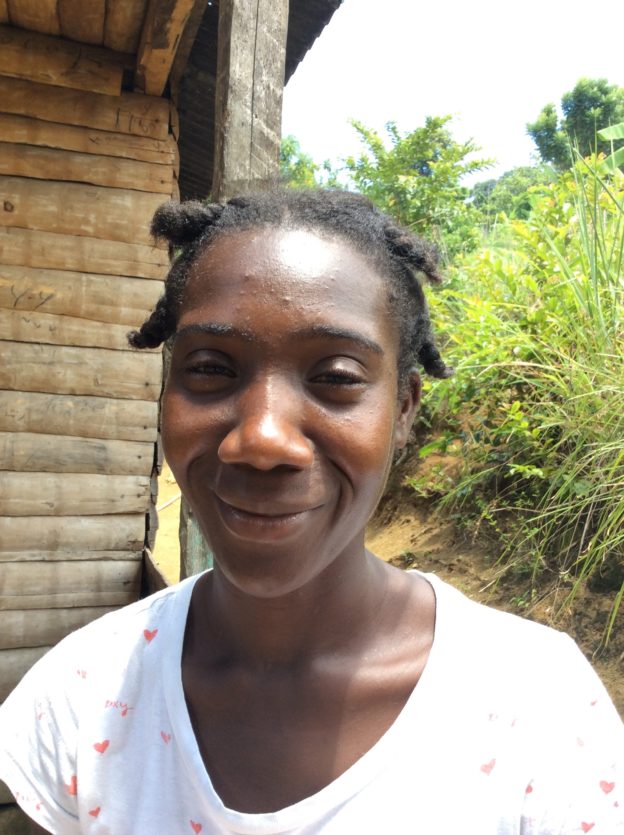Altagrace lives with her partner, their four kids, and her mother in a small house in Kaprens. She’s just 23 years old, and her oldest child is ten. She was a schoolgirl when she first got pregnant, and had to leave second grade. She’s still together with the father of that first child. She grew up in Kaprens in her parents’ home. They were farmers, and they struggled, but there was usually enough food for all.
Altagrace is intensely shy. She doesn’t want to answer any of the questions Martinière asks her, constantly repeating that she’s forgotten or that she doesn’t know. But Martinière persists. Altagrace finally answers, “M pa gen tèt,” or “I don’t have a head.” It’s a standard Haitian way to say that one’s memory is poor. But Martinière won’t have any of it. He tells Altagrace to shake the thing that God put on top of her shoulders, and Altagrace obediently nods her head a little to each side. Martinière says, “They call that thing a head. Don’t tell me you don’t have one.” Altagrace gives him a big smile.
She says that the reason the team invited her to join the program is that they saw her problems: “I don’t have a house. I don’t have any livestock to keep.” The couple lives mainly on what the man can earn as a day laborer, working for 50 gourds, or about 80 cents per day when he can find the work. Altagrace sometimes goes out for a day of work too.
She chose goats and a pig as her two enterprises, and her ambitions are still vague. “They’ll put me on the path forward. The animals will have young, and I’ll be able to send my children to school. When they’re sick, I’ll be able take them to the hospital.”
She has already suffered her first setback. She had used savings from her weekly stipend to start buying plantains by the bunch so she could carry them to market for sale. She wanted to get a business started quickly because she wants to send her oldest girl to school. “I don;t want her to grow up like I fid,” she explains.
She was selling 1800 gourds — about $27.50 — worth of plantains to a single customer. She was pleased because she was thus selling out in one sale. The women gave her two 1000-gourds bills, and she gave back 200 gourds in change. But before she even left the market, she learned that the bills were counterfeit and the buyer who gave them to her was gone.
